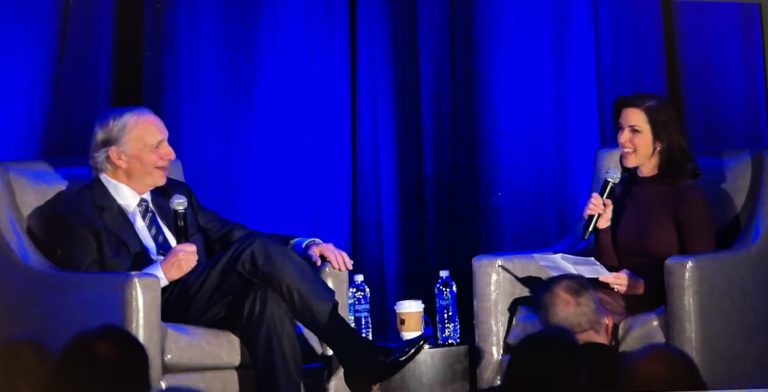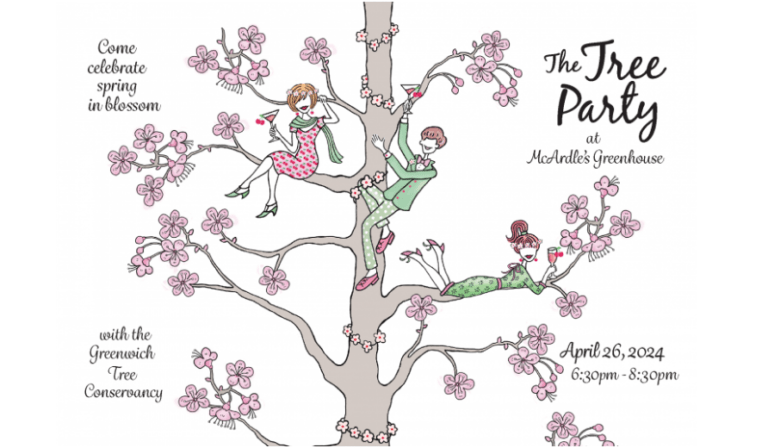
By Francis John Ambrogio, III
In 1979, while running for the Republican nomination for President of the United States, George Herbert Walker Bush was asked about toughness. Was he “too nice” to be President? He responds, “I equate toughness with moral fiber, with character, with principle, with demonstrated leadership in tough jobs when you emerge not bullying somebody, but with the respect of the people you led. That’s toughness. That’s fiber. That’s character.”
Greenwich can, and should, be proud to claim Bush as one of its own. His accomplishments – including heroic naval service, entrepreneurship, and public office, both elected and appointed – are well known and have been lauded by many. Although he moved to Texas and lived his professional life there, he was a New Englander through and through, perhaps the last true Yankee patrician in American public life. There is no doubt that his background and upbringing influenced the way he lived and the way he led – with modesty, amicability, and a deep sense of duty to God, family, and country. With quiet toughness and constant grace, he epitomizes what it is to be a gentleman.
When Bill Clinton assumed the Presidency in 1993, he found in the Oval Office a simple, personal note left by Bush on his way out. In it, Bush wished him “great happiness,“ and encouraged him not to “let the critics discourage you or push you off course.“ He closed with: “You will be our President when you read this note. I wish you well. I wish your family well. Your success is our country’s success. I am rooting hard for you. Good luck – George.“
Bush’s courtesy extended well beyond those in the halls of power. His former speechwriter, Peter Robinson, wrote that his “graciousness… appear[ed] most vividly in small incidents, when there could have been no doubt that he was simply being himself, not appealing to reporters or posing for the cameras.“ As the days have gone on since his passing, many have shared their stories about the late President, showing just how many lives he touched.
My own family has one such story. My father once told me that my grandfather had mentioned receiving a kind note from President Bush after my grandmother passed away in 1995. I do not know for sure if this note did, in fact, exist. I have never seen it. It was more than 20 years ago, and my grandfather may have misremembered in his twilight years – but I would like to dig through his records to see if it is actually there (he was just the type of person to not mention this kind of thing and shove the letter into a forgotten folder of a forgotten filing cabinet…)
Even if the letter is not there, or if the story was misheard or half-remembered, it is believable, because it is entirely In keeping with the character of Bush, “the inveterate letter writer,“ as his biographer John Meacham described him. My grandparents were born in Greenwich, and were only a few years older than President Bush. They may well have crossed paths once, or even many times – maybe on Greenwich Avenue, or a golf course, or perhaps in one of my great-grandfather’s taxi cabs. I may never know if such a meeting ever happened – but in Greenwich, it just may have.
I was born only five days before George Bush wrote his note to Bill Clinton in 1993. I know that I, and certainly most of my generation, would be surprised – if not shocked – to read or hear such words from any public figure today. But things do not have to be this way.
We often hear calls for civility, and when we instead get coarseness or snideness, we despair, as if we expected civility to appear miraculously, like the fully grown and armored Athena emerging from the head of Zeus. Getting back to healthy public life will take time, effort, and patience. Learning about those whose example we can follow, such as George H. W. Bush – and then following it – is a good place to start.
Francis is a Greenwich native, regular Sentinel contributor, and 1st Lieutenant, United States Army.




